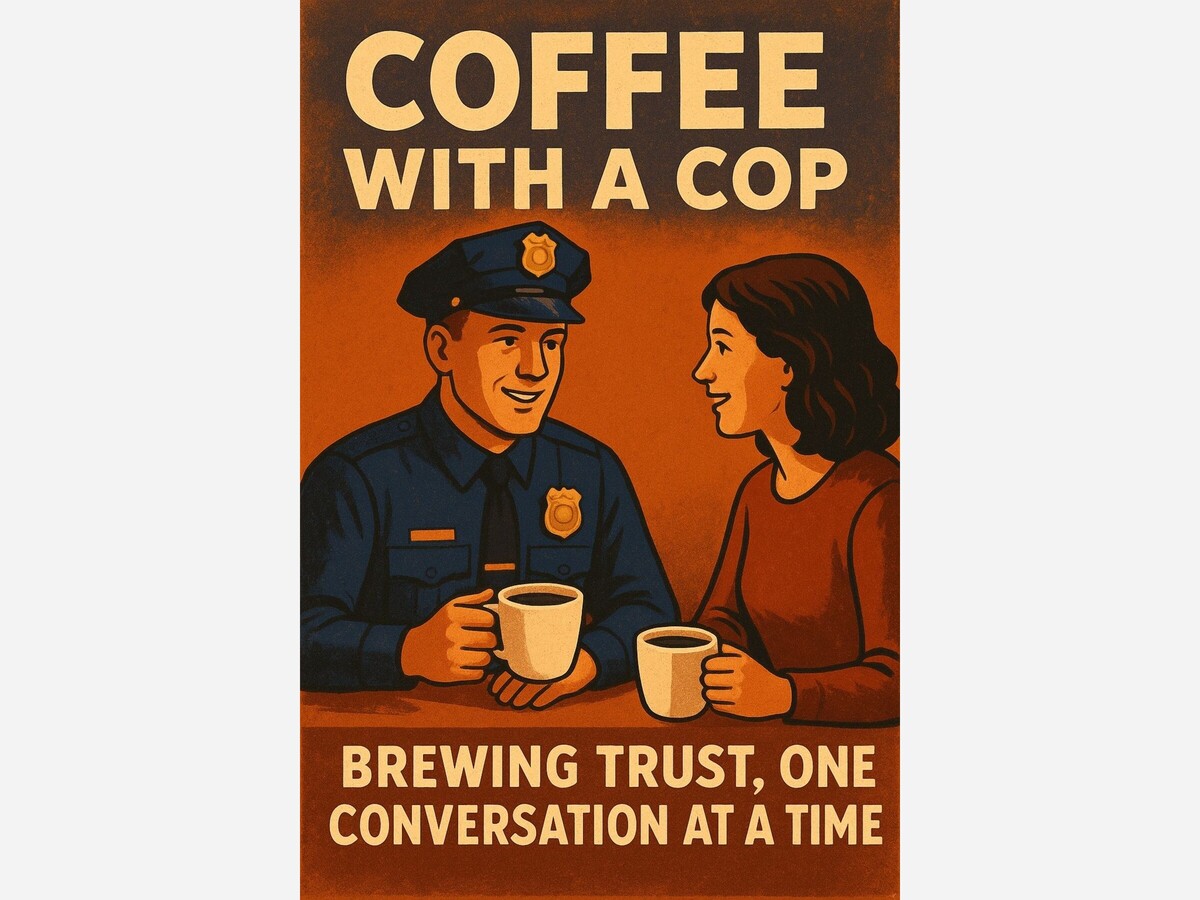Image


As the aroma of freshly brewed coffee wafts through the air on the first Wednesday of October, communities across the United States gather for a simple, yet profoundly transformative ritual: National Coffee with a Cop Day. At first glance, it may appear to be just another social event—people chatting over lattes and cappuccinos—but its significance runs far deeper. This day represents a deliberate effort to bridge a long-standing divide, inviting neighbors and law enforcement officers alike to step away from formalities and meet on common ground.
The concept is elegantly simple. Participants convene in a local coffee shop or café, sit at small tables, and engage in casual conversation. No arrests are made, no citations issued—only dialogue is exchanged. Yet, within these unassuming settings lies the power to reshape public perception, foster mutual understanding, and humanize a profession too often defined by headlines and tension.
A National Movement Rooted in Community
Coffee with a Cop began modestly in 2011, with the Hawthorne Police Department in California seeking a way to open lines of communication with residents. What started as a single initiative quickly proved its worth. The Hawthorne event revealed a truth that is both simple and profound: human connection dissolves fear and builds trust. Seeing an officer as a neighbor or a community member, rather than a symbol of authority alone, can transform the nature of law enforcement relationships.
Today, the movement has blossomed into a nationwide program. On National Coffee with a Cop Day, law enforcement agencies from coast to coast host simultaneous gatherings. From small towns to sprawling urban centers, officers and citizens come together in a spirit of openness, curiosity, and respect. While the national day serves as a focal point, many police departments embrace the philosophy year-round, hosting local Coffee with a Cop events that reinforce the bonds created in these initial encounters.
Breaking Barriers, One Cup at a Time
Why does a cup of coffee hold such symbolic power? The answer lies in its informality. Unlike formal town hall meetings or press conferences, Coffee with a Cop fosters a low-pressure environment. Participants are encouraged to share concerns, ask questions, and gain insight into the challenges and responsibilities of law enforcement. Likewise, officers gain a window into the lived experiences of the communities they serve. These interactions humanize both parties, creating empathy where suspicion once resided.
Moreover, the events act as catalysts for dialogue that extends beyond the café walls. Residents leave with a sense of being heard, while officers return to their work with a renewed understanding of community needs. Trust, the cornerstone of effective policing, is nurtured in these casual, caffeine-fueled encounters. The ripple effects are profound, contributing to safer neighborhoods, more responsive policing, and a strengthened social fabric.
A Call to Participate
National Coffee with a Cop Day is more than an annual observance—it is a national invitation to reconnect with one another. For community members, it is an opportunity to engage with officers beyond the sirens and flashing lights, to ask questions candidly, and to share perspectives in a neutral space. For law enforcement, it is a chance to demonstrate transparency, to listen actively, and to remind communities that policing is not a solitary endeavor, but a shared responsibility.
In a time when social divides are often stark and dialogue scarce, the simple act of sitting down for coffee carries revolutionary potential. It is a reminder that relationships are built not in crisis, but in conversation; that understanding grows not from fear, but from familiarity; and that trust is brewed, cup by cup, conversation by conversation.
As October dawns and coffee shops fill with the gentle hum of chatter and clinking mugs, National Coffee with a Cop Day offers a vision of what community can—and should—look like: open, honest, and united. It is a day to pause, to listen, and to engage—not just with law enforcement, but with the very essence of what it means to be part of a community. In every smile exchanged, every story shared, and every hand shaken over a warm cup of coffee, the nation is reminded that trust is not given—it is cultivated.
And sometimes, it begins with something as simple as coffee.